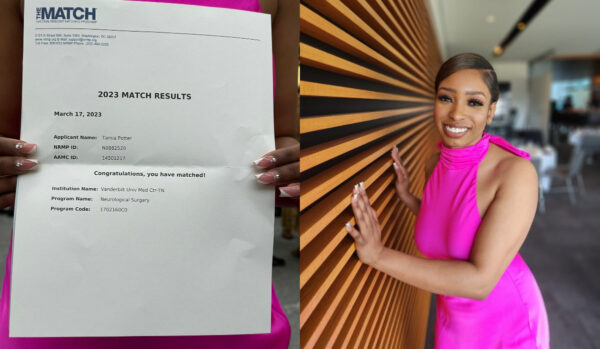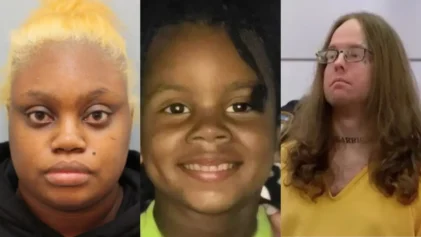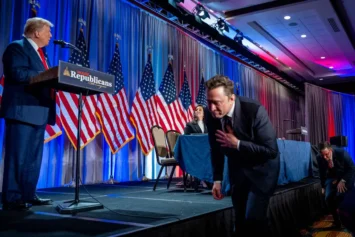A Florida Agricultural and Mechanical University graduate made history by becoming the first Black female accepted as a neurosurgery resident at Vanderbilt University Medical Center.
The soon-to-be doctor said she was “over the moon” to discover she’d made history at the 148-year-old Nashville, Tennessee, institution.

Case Western Reserve University Medical School student Tamia Potter has worked hard for nine years to join the small ranks of Black neurosurgeons in the country. In fact, she will become one of 34 Black women currently serving in the field, according to the American Society of Black Neurosurgeons.
On March 17, she received the acceptance letter that realized that goal and then some.
Out of the entire world, there were only three people accepted into the program. VUMC Neurosurgery tweeted a picture of Potter, along with two others: Alan Tang and Freddy Vallejo, both people of color.
“We are thrilled to announce our new Vanderbilt Neurosurgery residents! Congratulations- we are so excited to have you on our team!” the hospital tweeted.
Potter tweeted about the accomplishment.
“My first job was a certified nursing assistant at 17 years old in 2014. Today on March 17th, 2023, I was blessed to be selected as the first African American female neurosurgery resident to train at @VUMC_Neurosurg,” she wrote.
One of the posts included a video where she is speaking to an administrator from the school and asks, “Am I the first Black woman to train there?”
To her surprise, the woman on the other end of the call said simply, “You are.”
This is not the young woman’s biggest “first.” She also was the first in her family to attend medical school.
After high school, Potter, as a certified nursing assistant, worked at a nursing home with residents in the dementia unit. She would moonlight in the evenings at a few different hospitals to help put herself through FAMU. The young pre-med student graduated in 2018 with a degree in chemistry, according to Cleveland.com.
After college, she was accepted into the Case Western Reserve University School of Medicine in Cleveland.
Throughout her matriculation, she learned a few things about herself: One, she was intrigued by the human brain and nervous system, and two, how to fix problems that might arise in the human brain and nervous system.
She also learned the importance of giving back and mentoring others interested in the field, noting that’s one of the reasons why there are so few African-Americans who become neurosurgeons.
“Nobody told me how much this would cost,” Potter said. “Nobody in my family understood what I was doing. If someone shipped you across the country to medical school and said ‘figure it out,’ most people are going to want to go back home.”
Some mentors did emerge for Potter.
She names Dr. Todd Otteson, Dr. Robert L. Haynie and his wife Dr. Edweana Robinson as people who encouraged her to keep going and not to give up.
Another mentor, Dr. Chelsea Mooreland took to Instagram to celebrate Potter, writing in one post, “I could not be more proud of my amazingly talented and brilliant mentee who just so happens to be a Beta Alpha Soror and FAMU Alumnae.”
Despite the struggles, the soror figured it out, noting how important Black doctors are to the community.
Potter also explained the importance of having doctors that resembled the patients they serve, saying “if someone would have had a doctor that looked like them, the treatment would have been completely different, and it just would have been a different outcome.”
“Just having someone who looks like you — people don’t realize how important it is in medicine in making people feel safe,” she said.
Now, the soon-to-be resident will get to be the missing piece to this issue in the medical world. Though she has worked hard for it, she still is in shock at it all.
“I literally can’t even believe it,” Potter said. “I always knew that I wanted to be a neurosurgeon, but I didn’t think that this is what I would accomplish.”


